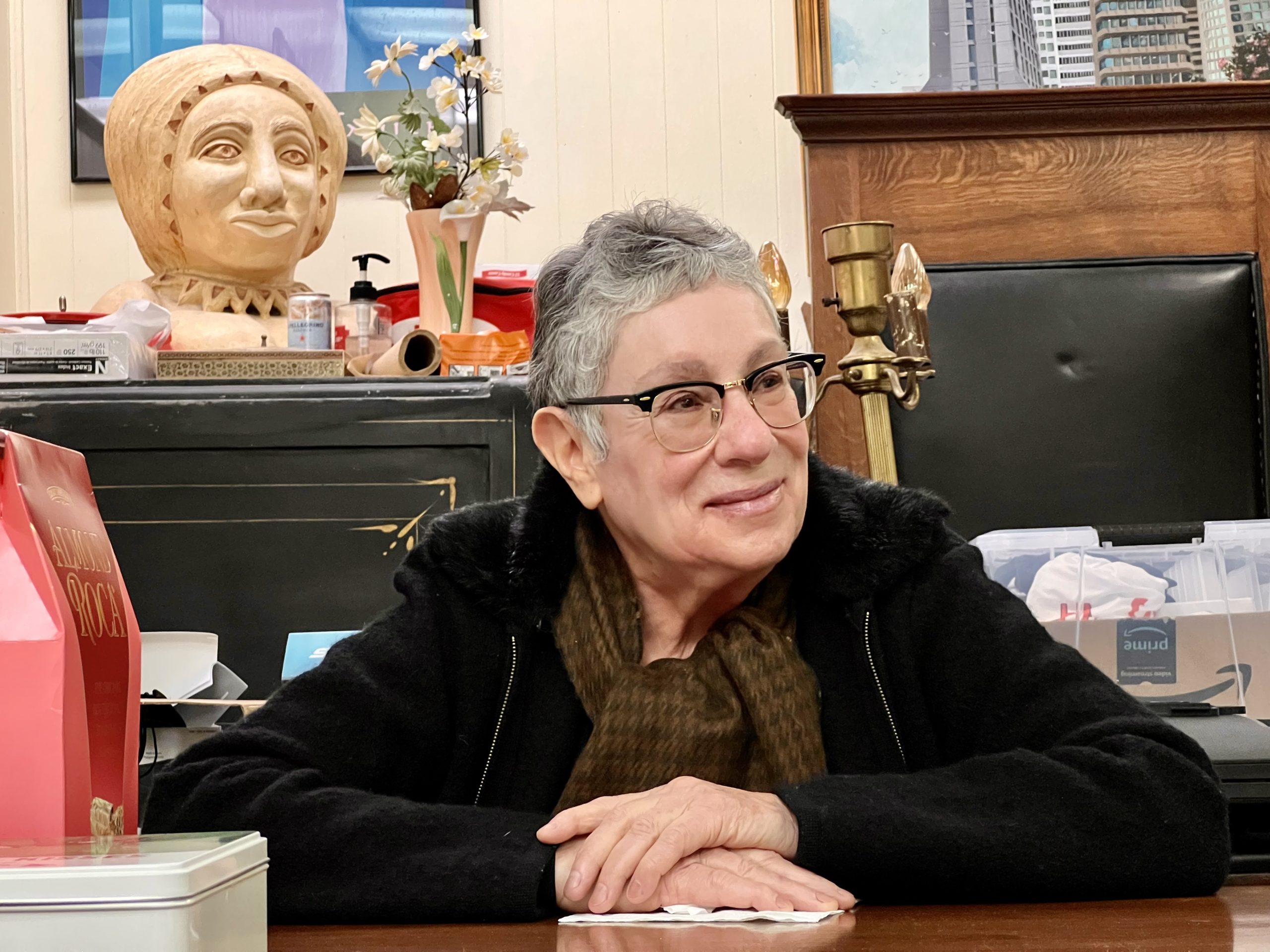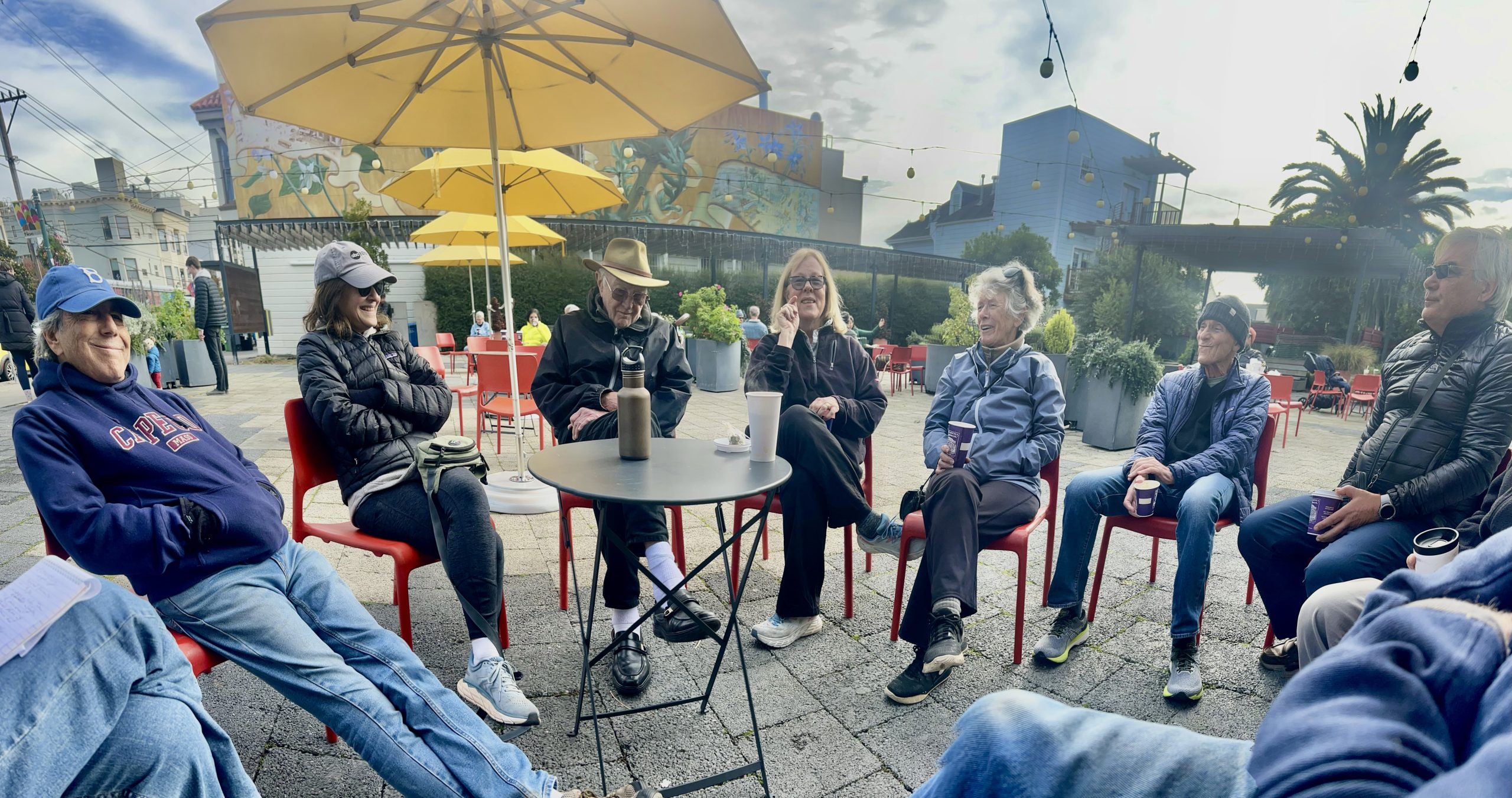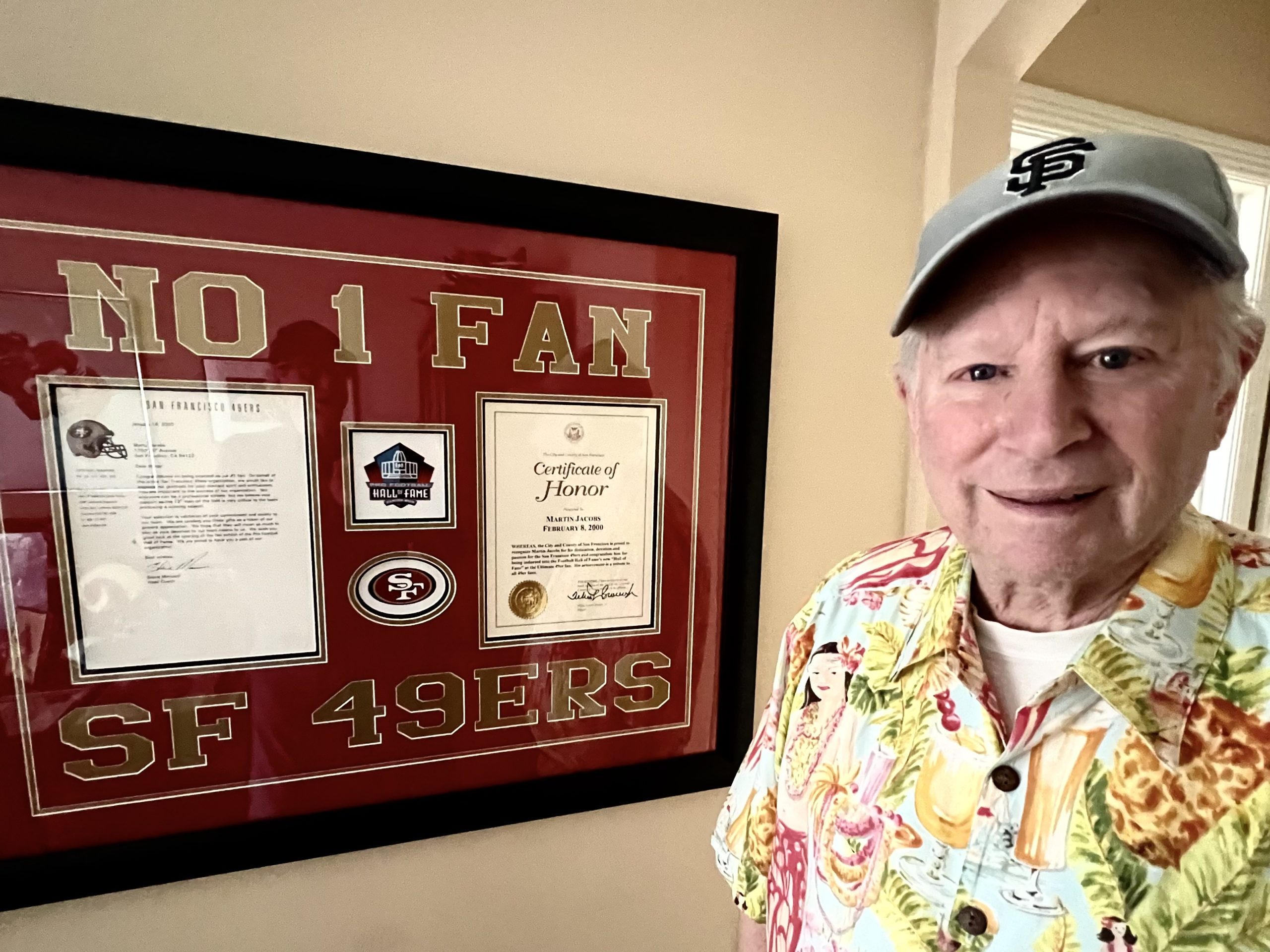Later-in-life learners credit Project Read, national one-on-one tutoring project
Ollie Smith grew up in the rural south. School wasn’t easy for him and he dropped out at the end of fourth grade to work on the family farm.
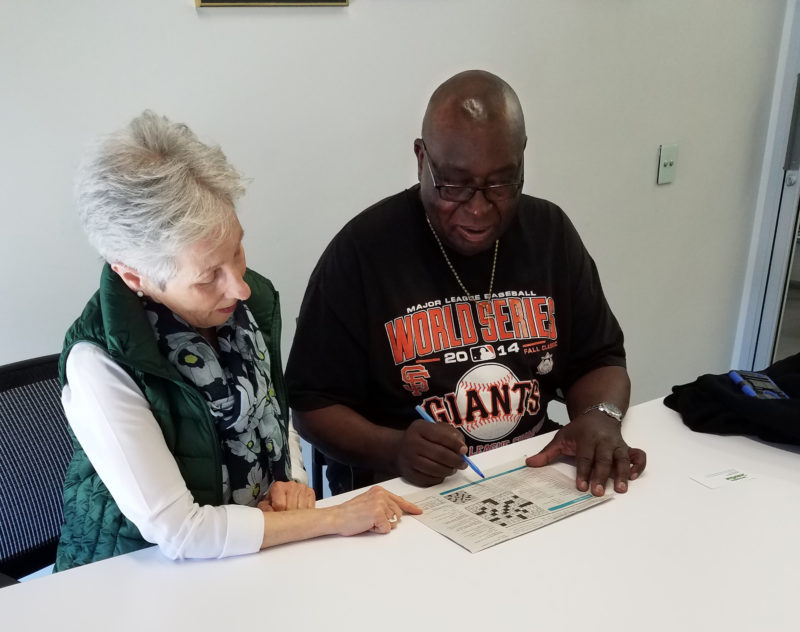
In 1967, Smith and his wife moved to San Francisco, where he drove a truck and found a job in construction. He was a good worker and in his early 60s was promoted to foreman. But there was a catch. He was now responsible for a lot of paperwork, and he still couldn’t read very well.
His wife and children helped him with the paperwork, but he knew it was time to learn himself. “I felt bad relying on them,” he said. It was his wife who found Project Read. “We came down (to the library) together to find help for me.”
He was still working when he enrolled in Project Read, free state-sponsored, individual tutoring for adults offered in public libraries across California. Participants are asked make a one-year commitment. But the time was not right and after a short while he dropped out. Holding a full-time job, taking care of a house and helping with the children left no time to study.
But Smith was committed, and five years ago, after retiring, he returned to Read. But his goals had shifted – from verifying time sheets and preparing work reports to reading his mail, understanding medical forms and letter writing.
“He brings in his prescriptions and we study the labels, work on crossword puzzles and spend some time on Reading Horizons, a software program recently installed for Read learners,” said Arleen Godwin, a retired office worker who tutors him for two hours once a week. “He’s come a long way from when he started.”
There’s an app for that
They even found an app that makes it easier for him to keep up with the minister in church. “Now when the minister says ‘turn to Ezekiel, chapter 31’,” she said, “Ollie doesn’t have to look over someone’s shoulder to see what page they’re on.”
Smith still relies on his family to complete the more complicated medical forms, but he can write letters to his children and read their letters to him.
The San Francisco Public Library began offering Project Read in 1983. Since then, the program has helped more than 5,000 adults improve their basic literacy skills. Today, the program serves approximately 80 tutor-learner teams: 28 percent of the learners are 60 and older, as are 37 percent of the tutors.
For some, Project Read is their last hope, said Randy Weaver, recently retired supervisor of the program. “They don’t feel confident enough for community college. And most have never had one person so committed to helping them.”
The program accepts adults of all ages, and motivations vary, he said. “Younger learners attend to develop job-related skills and to be better able to read to their children. One older learner wanted to read in bed for pleasure, just like his wife. Reading the labels on medications and taking the DMV test is also a great motivator.”
Donna Jones was always good at math; she has had a number of bookkeeping jobs. But reading and writing weren’t so easy. She signed up for Project Read in South San Francisco thinking she just needed to learn how to use commas and punctuation.
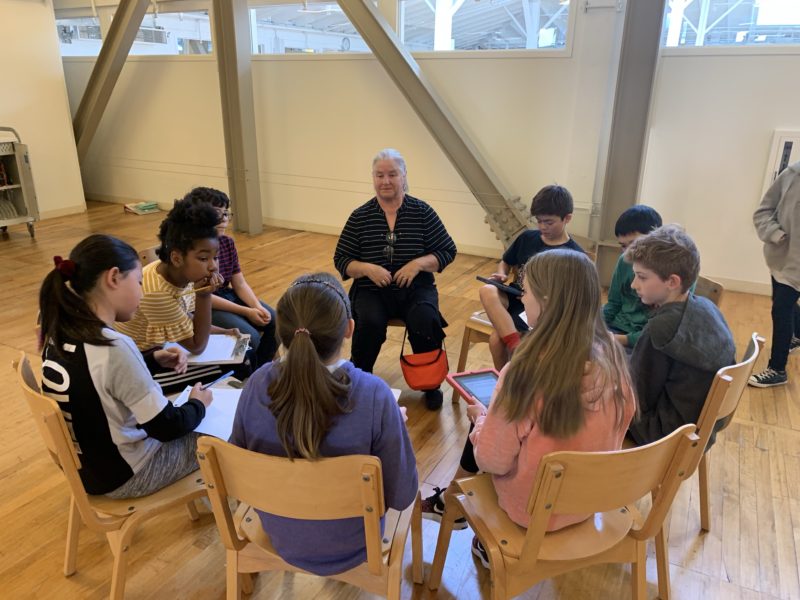
“I thought it might take three months,” she said. She stayed in the program, which has no time limits, for 15 years. She was in her 40s when she started. English in high school, then later in business school as well as at two community colleges had frustrated her to the point of giving up.
She dropped out of business school because the English classes were too hard. She said a counselor at City College of San Francisco wanted to know how she could be “so damn smart in math and so damn dumb in English.”
“I was always playing catch-up’
Jones had graduated from San Francisco’s Lincoln High at a fourth-grade reading level. Some teachers were sympathetic and concerned: One suggested she needed glasses and moved Jones’ chair to the front of the room; another assigned her to cleaning the erasers. Many labeled her “smart but lazy” and ignored her.
“I was embarrassed, nothing made sense to me. No matter how I tried, it was never good enough. I always felt different … like the rest of the kids were on a higher level and I was way down here. I just saw myself as way below average. I was always playing catch-up – just like one of those hamsters on a treadmill, so I gave up.”
When faking illness didn’t work, she tried to be unseen. The best days were when she sat silently at the back of the room and no one paid her any attention. “I was totally invisible. I sat in the back and never said anything. Yeah, this way I don’t exist, and I can’t get in trouble so they don’t hold me back.”
Over 15 years of weekly meetings at Project Read, she mastered English with the help of her tutor. He was a patient man and interested, she said. “I learned what a father was like.”
Her Read days were busy. Jones fully committed herself to the program. She edited the student column in Project Read’s newspaper, chaired its student council and served on its governance council. She led workshops for its writer-to-writer program, in which students write letters to authors of books they enjoy. And, no longer staying invisible, she gave the keynote speech at its 2009 statewide conference.
No longer afraid of writing, she found time to write a chapter in the 2011 book, “Our Stories, Ourselves: The Embodyment of Women’s Learning in Literacy.” She started a women’s support group within the adult learning community.
She also volunteered at a children’s reading program. She brought her dog, Gaea, and the children sat next to him while they read. “I do not want children to struggle with and hate school like I did,” she said.
‘I don’t want kids to hate school like I did’
Jones had wanted to leave high school. But her parents, who hoped she would go to college, wouldn’t allow it. To keep peace, her mother began doing her homework.
She graduated, but chose not to attend the ceremony. She just wanted to stay home, to be “invisible to the outside world.”
But her mother kept pushing her. For a while, Jones joined her mother at her job in an attorney’s office. She helped out with typing, although the lawyer had to write everything out for her in longhand, including punctuation. He was soon to retire, so, with considerable prodding from her mother, Jones returned to school.
Eventually, it was the teacher in her “bonehead English” class at Skyline College who suggested she try Project Read.
Now in her late 60s, she is looking for new opportunities to help others learn to read. She’s no longer at the back of the room keeping silent.
Project Read is housed on the fifth floor of the San Francisco Public Library downtown, 100 Larkin St. For more information call 415-557-4388, visit the Read office on The Bridge on the fifth floor of the downtown library, or email Susan Fink, the Literacy and Learning specialist: susan.fink@sfpl.org.
Project Read also offers an English language tutoring program for non-native speakers who want to improve their speaking skills. Call 415-557-4388, visit the Read office or apply online at sfpl.org/ESLtutoring.



